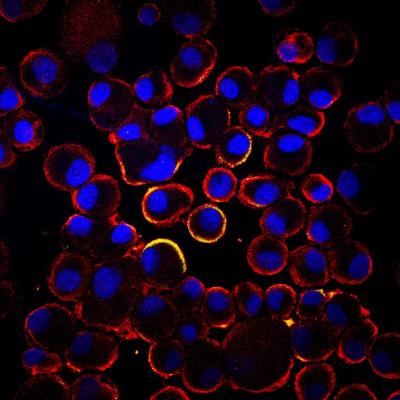
March 10, 2014 — Marty Greenfield lives with crushing pain every day due to angina. He has suffered a heart attack, and a coronary bypass procedure and angioplasty have provided little relief. His doctor referred him to University of California, Los Angeles to be considered for a heart transplant.
Jonathan Tobis, a UCLA clinical professor of cardiology, performed an angiogram and angioplasty on Greenfield, 64. He found that the patient was not a candidate for a heart transplant because his heart muscle function was still good.
Instead, Tobis suggested that Greenfield consider participating in a Phase 3 clinical trial that uses a patient's own blood-derived stem cells to try to restore circulation to the heart. The procedure uses technology to map the heart in 3-D and guides the doctor to deliver the stem-cell injections to targeted sites in the heart muscle.
On Oct. 17, Greenfield became the first patient at UCLA to participate in the multicenter clinical trial. He said he jumped at the chance to help, even though the study is double blind.
"This just isn't about me," said Greenfield, a married father of two sons who lives near Las Vegas. "If I can help move this research forward so that it helps just one person, it will be worth it."
The study uses stem cells to treat cardiac patients who are either unable to receive U.S. Food and Drug Administration (FDA)–approved standard of care therapy or have already received standard of care therapy but did not get better.
Before injecting either the stem cells or placebo into his heart, researchers first mapped Greenfield's heart with colorful 3-D images that enabled them to study motion of the muscle and the voltage it was generating.
"We are able to tell by the voltage levels and motion which area of the muscle is scarred or abnormal and not getting enough blood and oxygen," said Tobis, director of interventional cardiology research at the Geffen School of Medicine and the UCLA Health System. "We then target the injections to the areas just adjacent to the scarred and abnormal heart muscle to try to restore some of the blood flow."
For the study, researchers take blood from the patient and isolate stem cells that express the CD34 protein, known as CD34+ cells. These pluripotent cells are then purified and injected into the patient's heart using a catheter inserted into a groin artery.
The UCLA team hopes these cells will either become new and healthy heart muscle cells or that they will stimulate the growth of new blood vessels. The new blood vessels could provide better blood flow and oxygen to the heart muscle adjacent to the abnormal tissue.
The study seeks to enroll 444 patients nationwide. The three-armed study comprises the double-blind group of 222 receiving stem-cell therapy, 111 receiving a placebo and 111 who are being treated according to the current standard of care.
The study is funded by Baxter Healthcare Corp. To qualify, patients must have tried all anti-anginal FDA–approved standard of care therapy, unless contraindicated or not tolerated, to treat their chest pain and still continue to be symptomatic.
For more information: www.ucla.edu


 January 05, 2026
January 05, 2026 









